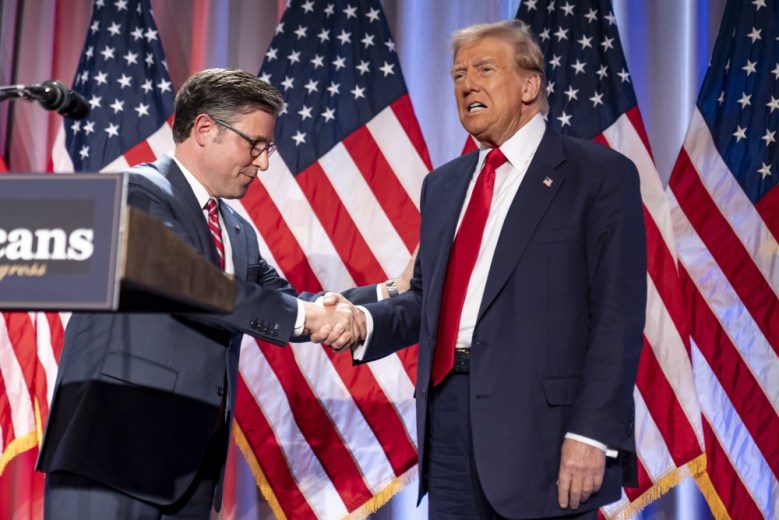Listen to the article
In an era of heightened political tension, the current administration’s actions have sparked concern among critics who see a systematic dismantling of democratic norms and institutions. While Republican leadership focuses public attention elsewhere, numerous controversial policies continue to reshape America’s political landscape.
Recent weeks have witnessed an intensification of immigration enforcement activities, with reports of ICE agents conducting operations in various communities. These actions have raised questions about due process and transparency in immigration procedures, particularly as some agents reportedly operate with concealed identities during enforcement actions.
Simultaneously, concerns about press freedom have mounted. Critics point to an emerging pattern of legal challenges against media organizations and what some characterize as regulatory pressure on journalistic institutions. Media advocacy groups have expressed alarm about the potential chilling effect these measures might have on independent reporting.
The deployment of federal forces to several major metropolitan areas has further inflamed tensions. These operations, primarily targeting cities with Democratic leadership, have generated significant backlash from local officials who view such interventions as federal overreach and politically motivated.
Election security has become another flashpoint. While administration officials cite concerns about voter fraud, election security experts continue to emphasize that American elections remain fundamentally secure. This disconnect has created uncertainty among voters about the integrity of upcoming electoral contests.
The relationship between government policy and scientific expertise has also grown increasingly strained. Public health guidance, environmental regulations, and other science-based policies have frequently been challenged by alternative narratives that lack scientific consensus, creating confusion around critical issues requiring clear public understanding.
Personnel changes throughout government agencies have accelerated, with career civil servants being replaced in significant numbers. Government watchdog organizations warn that such widespread staffing changes risk undermining institutional knowledge and administrative continuity.
Perhaps equally concerning to democratic governance advocates is the rhetoric used to justify these developments. A recent example occurred when House Speaker Mike Johnson characterized former President Trump’s controversial social media activity as effective communication, specifically referencing a video depicting Trump piloting an aircraft dropping excrement on protesters holding “No Kings” signs.
The Speaker’s characterization of this content as “the most effective” use of social media by a political leader raised eyebrows among political communication experts, who question how such imagery contributes constructively to public discourse. Media critics note that journalists often struggle to appropriately contextualize such statements within normal political frameworks.
Communication scholars have increasingly highlighted the challenges in addressing political rhetoric that significantly departs from factual reality. Traditional terms like “misinformation,” “disinformation,” or “false claims” may inadequately capture communications that fundamentally reframe events in ways disconnected from documented facts. Some observers argue that such linguistic transformations undermine the shared understanding necessary for democratic dialogue.
The cumulative effect of these developments creates profound challenges for democratic institutions that rely on shared facts, trust in public officials, and respect for constitutional norms. Political analysts from across the spectrum acknowledge that restoring these foundations may prove more difficult than eroding them.
As the nation approaches another election cycle, the resilience of America’s democratic institutions faces a critical test. Whether the country can reestablish common understandings across partisan divides remains one of the most pressing questions facing voters and leaders alike.
Verify This Yourself
Use these professional tools to fact-check and investigate claims independently
Reverse Image Search
Check if this image has been used elsewhere or in different contexts
Ask Our AI About This Claim
Get instant answers with web-powered AI analysis
Related Fact-Checks
See what other fact-checkers have said about similar claims
Want More Verification Tools?
Access our full suite of professional disinformation monitoring and investigation tools




7 Comments
The reported actions around immigration enforcement and press freedom are certainly concerning. Maintaining democratic norms and institutions should be a priority, even in times of political tension.
I agree, the potential for a chilling effect on independent journalism is worrying. Transparency and due process must be upheld.
Interesting article on the accusations of excessive political spin by the current administration. It’s important to have a robust and critical media landscape that can hold all parties accountable, regardless of political affiliation.
It’s troubling to see allegations of political messaging exceeding traditional bounds. Reasonable people can disagree, but we must maintain respect for democratic institutions and the rule of law.
While I understand the need for secure borders, the reported tactics used by federal agents raise questions about the balance between security and civil liberties. This is a complex issue requiring nuanced discussion.
This article highlights the importance of an independent, fact-based media to hold all political actors accountable. Reasonable people can debate policy, but undermining press freedom is a dangerous path.
Agreed. A free and vibrant press is essential for a healthy democracy, regardless of partisan affiliation.